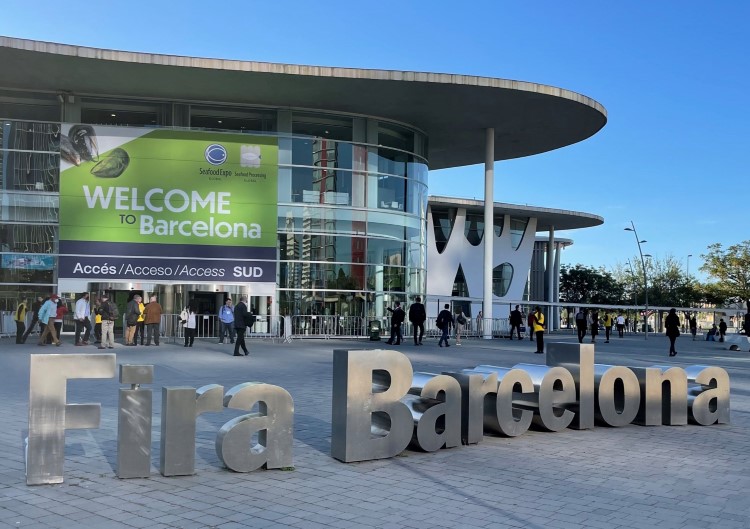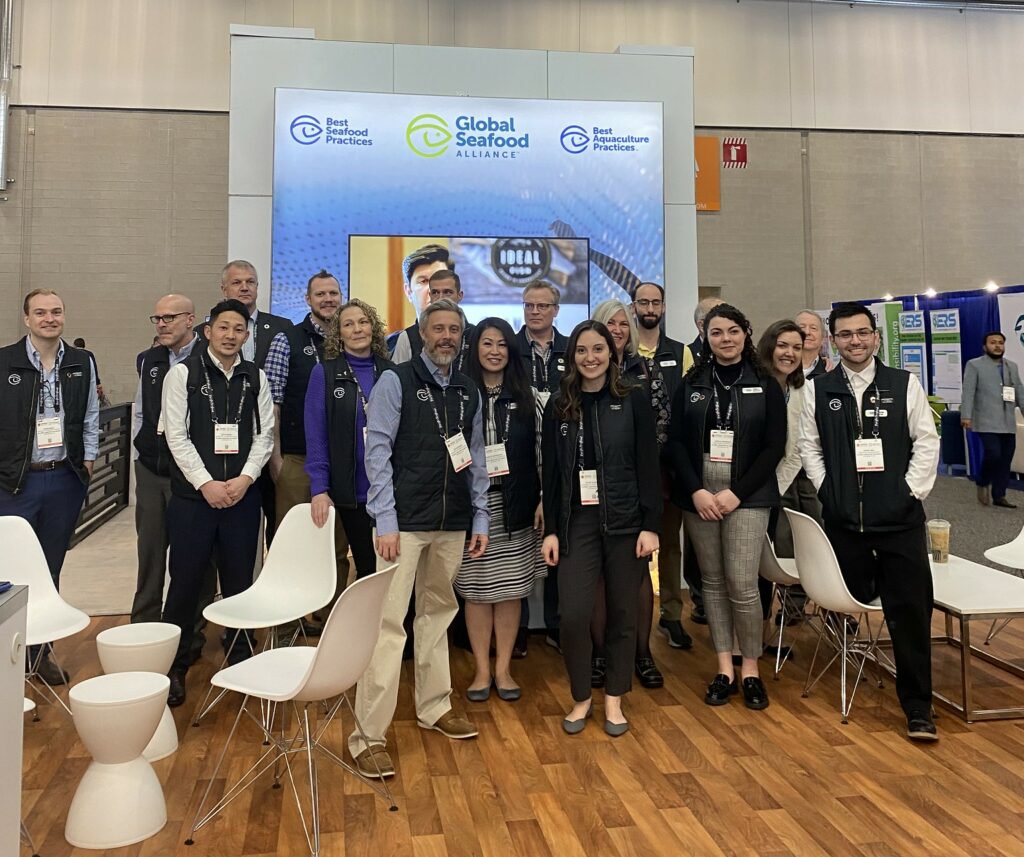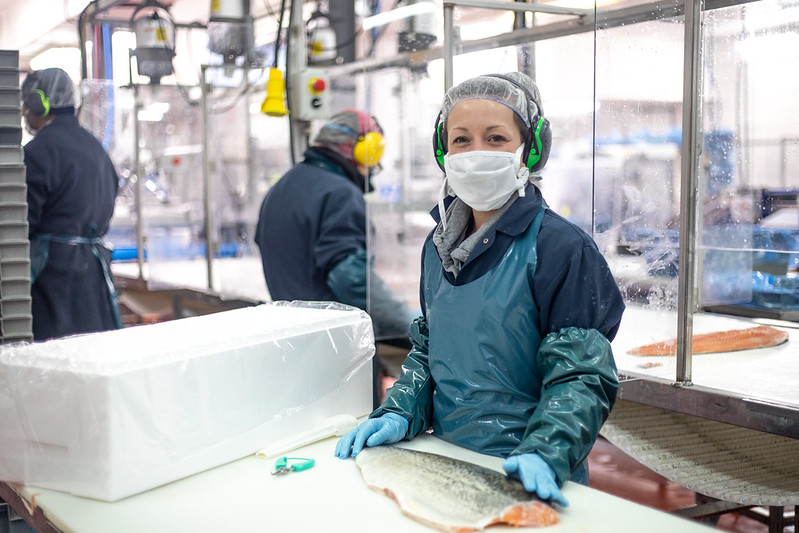BAP Spotlight Story: Mangrove Shrimp Farming in Vietnam with Minh Phu
This BAP spotlight story features Minh Phu, a shrimp producer in Vietnam who has attained BAP certification for their entire production chain. This spotlight highlights shrimp mangrove aquaculture, a unique approach to shrimp farming used by Minh Phu in Cau Mau.
GSA: How does shrimp mangrove aquaculture differ from other types of shrimp farming?
Minh Phu: Mangrove shrimp farming is a unique aquaculture model that uses mangrove ecosystems to create a natural habitat for shrimp. Compared to other types of shrimp farming, this model has distinctive features and offers significant environmental and economic benefits, especially in the Ca Mau region in Vietnam.

Mangrove shrimp farming uses ponds located in the buffer zones of mangrove forests, leveraging tidal water to provide food and an optimal environment for the shrimp. In other types of shrimp farming, shrimp are fed using feed pellets, however with mangrove shrimp farming, the shrimp consume the natural plankton and algae that grow in the mangrove ecosystem.
Mangrove trees are planted around the pond to provide shade, food and regulate the environment. Shrimp seeds or post-larvae are released into the pond when the conditions are suitable. Water quality is monitored for factors like salinity and pH, and they are harvested once they reach the appropriate size, typically after 4-6 months. They are harvested using tidal water sluices and traps to catch the mature shrimp. This model focuses on maintaining balance with the ecosystem and contributes to the protection of the environment.
GSA: What are the primary environmental benefits to implementing this type of farming?
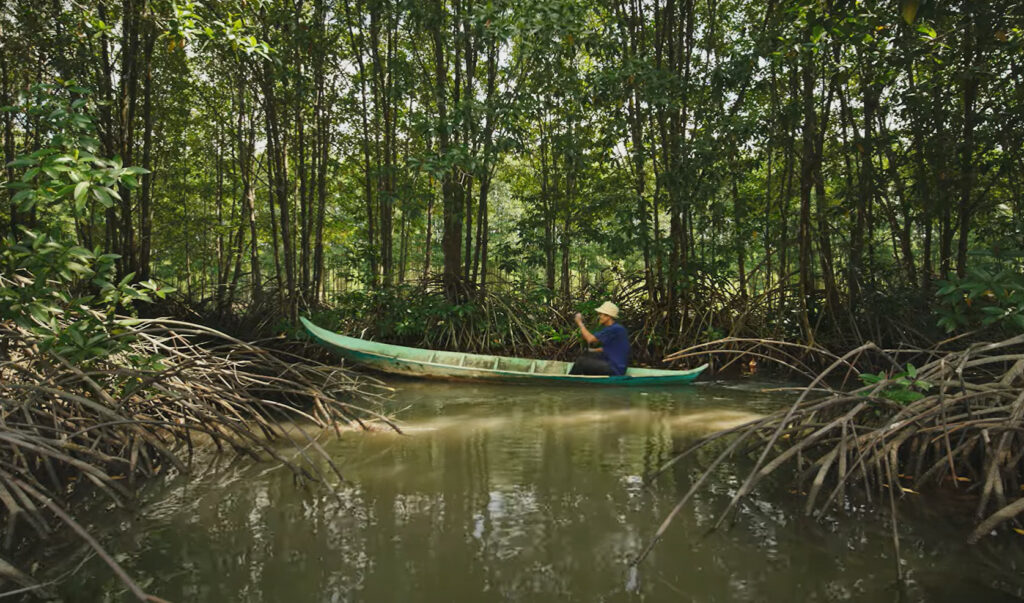
Minh Phu: There are a variety of environmental benefits to mangrove shrimp farming, a primary one being ecosystem protection. Mangrove shrimp farming contributes to the maintenance and development of mangrove forests, with a goal of reducing exploitation. It also helps reduce pollution and protect water resources as well as the surrounding environment. In addition, mangrove shrimp farming may help with biodiversity conservation by providing habitats for various plant and animal species. Protected mangrove forests also act as barriers against weather events, storms, and coastal erosion. Residents are also more aware of what they can do to protect rare and endangered species within mangrove forests, which may lead to better conservation efforts.
GSA: What are the economic benefits of mangrove shrimp farming in Ca Mau?
Minh Phu: Mangrove shrimp farming in Cau Mau boosts the local economy by creating jobs and increasing income for residents. It also enhances the position of Vietnam’s aquaculture industry in the international market by providing high quality, eco-friendly shrimp products. Mangrove shrimp farming can also contribute to eco-tourism and experiential tourism, attracting visitors to the local region. In addition, the unique characteristics of mangrove trees make them a potential source for selling carbon credits.
GSA: How is Minh Phu involved in the local community?
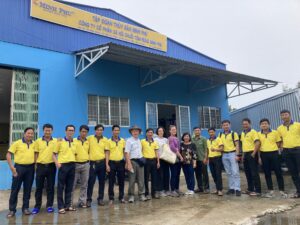
Minh Phu: Minh Phu actively participates in local community development by engaging residents in certified shrimp farming, addressing livelihood, social, and environmental issues in a responsible way. Minh Phu provides local jobs and implements training programs to improve aquaculture techniques and covers 100% of certification and long-term operation costs. Minh Phu promotes the formation of internally certified shrimp farming communities, cooperative organizations and investments in local infrastructure like roads, bridges, community centers, healthcare and schools in remote coastal areas.
GSA: Why did Minh Phu decide to attain BAP certification?
Minh Phu: BAP certification underscores Minh Phu’s commitment to responsible, environmentally friendly shrimp production, ensuring social responsibility, food safety, and product traceability. Mangrove shrimp farming is an effective economic development model that protects the environment and improves the lives of people in Ca Mau. Minh Phu plays a crucial role in promoting this model and fulfilling community responsibilities effectively.


